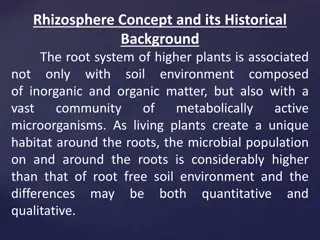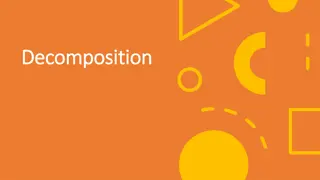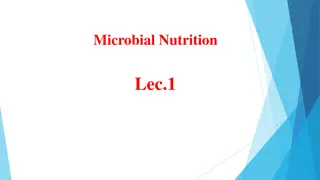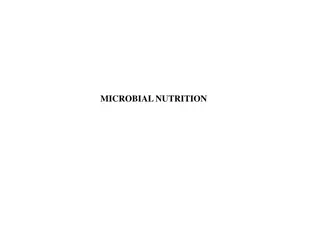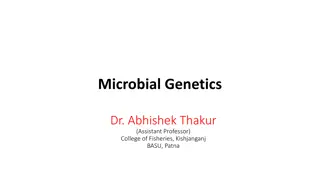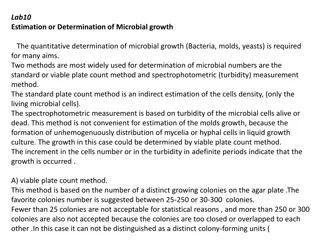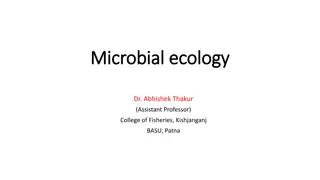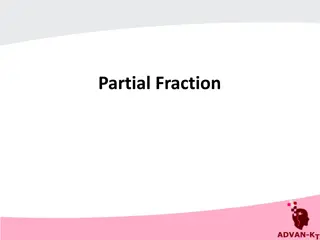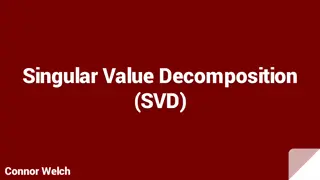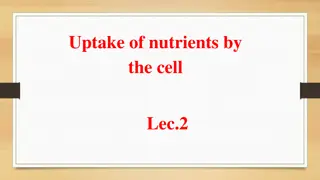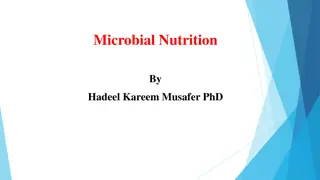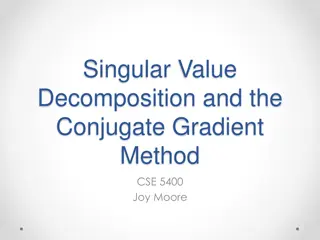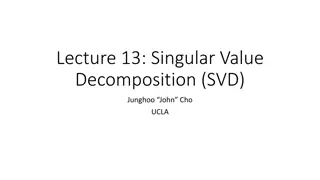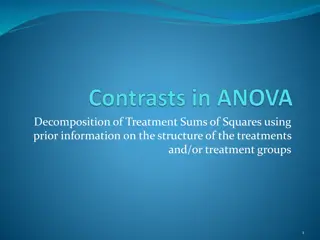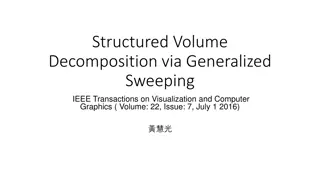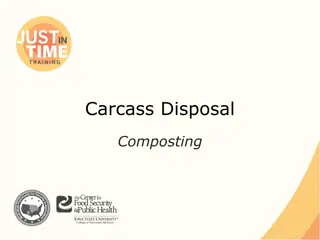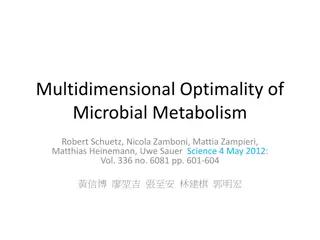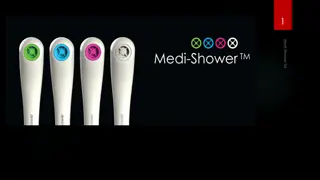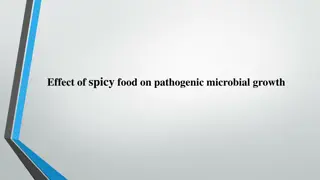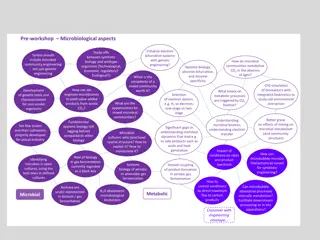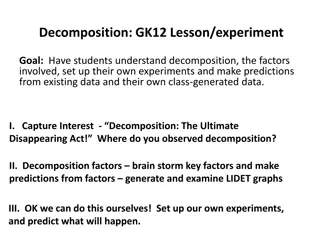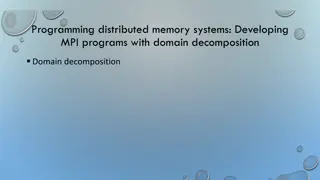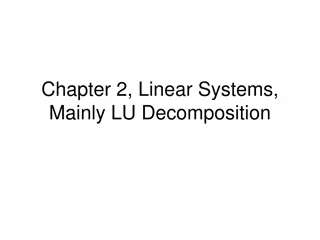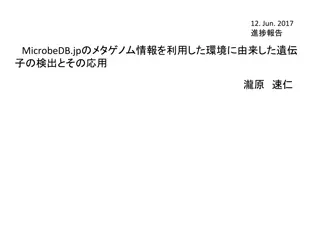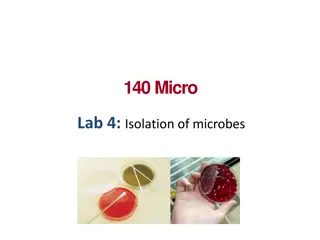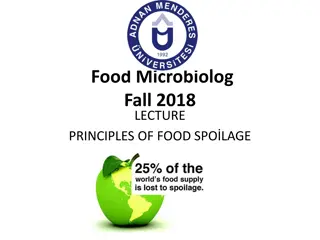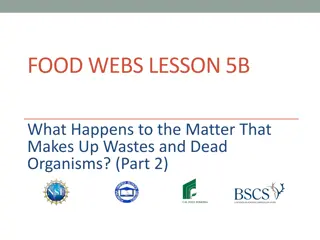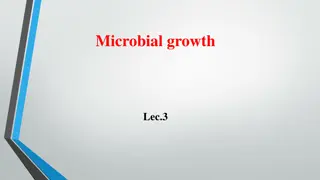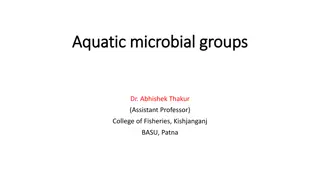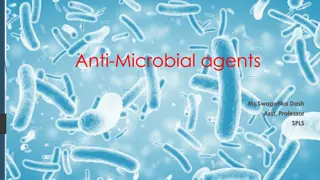Understanding the Fate of Herbicides in Soil
The fate of herbicides in soil is influenced by factors such as micro-organism decomposition, chemical decomposition, photodecomposition, adsorption by soil, surface runoff, leaching, plant uptake, and volatilization. Micro-organisms like algae, fungi, actinomyces, and bacteria play a crucial role i
6 views • 7 slides
Understanding Applied Microbiology: Insights into Microbial Diversity and Cell Organization
Applied Microbiology focuses on harnessing the capabilities of microorganisms for the production of beneficial products like medicines, vaccines, and biotechnological advancements. This field explores the intricate interactions between prokaryotic and eukaryotic organisms, emphasizing their pivotal
0 views • 23 slides
Understanding the Rhizosphere: A Historical and Microbial Perspective
The rhizosphere, the region surrounding plant roots, harbors a diverse community of microorganisms influenced by plant roots. Historical background and microbial interactions in the rhizosphere are explored, highlighting the favorable habitat for microbial proliferation and metabolism. Various techn
1 views • 49 slides
Understanding the Power of Decomposition in Problem Solving
Learn about the concept of decomposition and its importance in problem-solving scenarios in both real-life and Computer Science. Discover how breaking down complex problems into manageable sub-problems can lead to efficient solutions. Explore how decomposition aligns with algorithmic thinking and en
1 views • 11 slides
Understanding Microbial Nutrition and Bacterial Physiology
Microbial nutrition involves essential elements required for microbial growth and energy production. Bacterial physiology delves into the structures and functions that enable bacteria to thrive, from cell wall composition to enzyme activities. Major elements like C, O, H, N, S, and P are crucial for
2 views • 20 slides
Understanding Microbial Nutrition and Growth Factors
Microbes require carbon for metabolic activities, with organisms categorized as heterotrophs or autotrophs based on their carbon source. In addition to carbon, macronutrients like nitrogen, phosphorous, sulfur, potassium, and magnesium are crucial for cell function. Growth factors such as amino acid
0 views • 15 slides
Understanding Microbial Genetics and Mutations in Organisms
Explore the world of microbial genetics with Dr. Abhishek Thakur, an Assistant Professor specializing in Microbial Genetics at the College of Fisheries, Kishjanganj, BASU, Patna. Learn about important concepts such as strains, clones, genome, phenotype, genotype, genes, genetic recombination, and mu
0 views • 19 slides
Parallel Implementation of Multivariate Empirical Mode Decomposition on GPU
Empirical Mode Decomposition (EMD) is a signal processing technique used for separating different oscillation modes in a time series signal. This paper explores the parallel implementation of Multivariate Empirical Mode Decomposition (MEMD) on GPU, discussing numerical steps, implementation details,
1 views • 15 slides
Methods for Determination of Microbial Growth
Quantitative determination of microbial growth is crucial for various purposes, with two commonly used methods being the standard plate count and spectrophotometric measurement. The standard plate count method estimates living microbial cell density, while spectrophotometric measurement relies on tu
2 views • 6 slides
Understanding Microbial Ecology: Interactions and Associations in Ecosystems
Interactions of organisms in ecosystems play a crucial role in the functioning of microbial ecology. Dr. Abhishek Thakur explores symbiosis, mutualism, syntrophism, commensalism, predation, and parasitism, shedding light on how different organisms interact with each other and their physical environm
0 views • 9 slides
Understanding Partial Fraction Decomposition
The partial fraction decomposition method is a powerful technique used to simplify rational functions by breaking them into simpler fractions. It involves reducing the degree of either the numerator or the denominator. Learn about proper and improper fractions, simple and repeated factors, and how t
0 views • 17 slides
Understanding Singular Value Decomposition (SVD)
Singular Value Decomposition (SVD) is a powerful method for solving systems of linear equations or matrices that are singular or close to singular. When LU-decomposition or Gaussian elimination fail, SVD provides a stable matrix decomposition helpful in various applications. It is particularly usefu
0 views • 17 slides
Mechanisms of Nutrient Uptake by Microbial Cells
Nutrient uptake by microbial cells involves various transport mechanisms such as passive diffusion, facilitated diffusion, active transport, and group translocation. These mechanisms ensure the specific acquisition of required nutrients by the cell through the selectively permeable plasma membrane.
3 views • 15 slides
Understanding the Normal Microbial Flora of the Human Body
The normal microbial flora, also known as the indigenous microbiota, inhabit various areas of the human body such as the gastrointestinal tract, respiratory tract, genitourinary tract, and skin. They play a crucial role in maintaining health and can re-establish themselves when disturbed. While resi
0 views • 22 slides
Understanding the Singular Value Decomposition
The Singular Value Decomposition (SVD) is a powerful factorization method for matrices, extending the concept of eigenvectors and eigenvalues to non-symmetric matrices. This decomposition allows any matrix to be expressed as the product of three matrices: two orthogonal matrices and a diagonal matri
0 views • 35 slides
Understanding Microbial Nutrition and Essential Elements
Microbial nutrition is crucial for the growth and functioning of microorganisms, requiring various elements in different quantities to construct cellular components and obtain energy. Major elements like carbon, oxygen, hydrogen, nitrogen, sulfur, phosphorus, and others play vital roles in microbial
0 views • 20 slides
Computational Thinking, Algorithms & Programming Overview
This unit covers key concepts in computational thinking, including decomposition, abstraction, and algorithmic thinking. Decomposition involves breaking down complex problems, abstraction focuses on identifying essential elements, and algorithmic thinking is about defining clear instructions to solv
1 views • 5 slides
Understanding Singular Value Decomposition and the Conjugate Gradient Method
Singular Value Decomposition (SVD) is a powerful method that decomposes a matrix into orthogonal matrices and diagonal matrices. It helps in understanding the range, rank, nullity, and goal of matrix transformations. The method involves decomposing a matrix into basis vectors that span its range, id
0 views • 21 slides
Understanding Singular Value Decomposition (SVD) in Linear Algebra
Singular Value Decomposition (SVD) is a powerful technique in linear algebra that breaks down any matrix into orthogonal stretching followed by rotation. It reveals insights into transformations, basis vectors, eigenvalues, and eigenvectors, aiding in understanding linear transformations in a geomet
3 views • 18 slides
Understanding Decomposition of Treatment Sums of Squares
Decomposition of treatment sums of squares involves utilizing prior information about treatment structure to analyze treatment group means through contrasts and hypothesis testing. This process allows for the testing of specific hypotheses and the creation of F-statistics. In an example scenario wit
4 views • 12 slides
Structured Volume Decomposition via Generalized Sweeping
This paper introduces a new technique for generating a simple and predictable structured hex-mesh, providing better convergence properties and more space efficiency in computer graphics and engineering applications. The method involves computing 3D harmonic function decomposition, slicing the object
0 views • 30 slides
Java Review & Functional Decomposition in CSE 122 Spring 2023
Lecture 01 in CSE 122 covers Java review, functional decomposition, and code quality. Announcements include a Java review session, programming assignments, and reminders on Java syntax. The session encourages active participation through in-class activities using Slido polls. Students are also urged
0 views • 24 slides
Bi-Decomposition of Large Boolean Functions Using Blocking Edge Graphs
Bi-decomposition is a vital technique in logic synthesis for restructuring Boolean networks. This paper discusses the methodology of breaking down large Boolean functions using Blocking Edge Graphs (BEG) to simplify physical design and reduce complexity. The process involves constructing BEG, perfor
1 views • 29 slides
Factors Affecting Microbial Growth in Foods
Moisture content and pH levels are key factors influencing the growth and survival of microorganisms in foods. The water activity (aw) of food substrates affects microbial growth, with bacteria and fungi having varying requirements. Lowering aw below optimum levels can increase the lag phase of grow
2 views • 15 slides
Effective Carcass Disposal Through Composting
Composting carcasses with organic materials can accelerate biological decomposition, destroy pathogens, and produce a nutrient-rich humus. Proper carbon-to-nitrogen ratios, moisture levels, oxygen maintenance, and temperature control are crucial for the efficiency of the composting process. Mixing a
0 views • 21 slides
Multidimensional Optimality of Microbial Metabolism
Exploring the multidimensional optimality of microbial metabolism through metabolic network analysis, C-based flux analysis, and stoichiometric reaction modeling. The concept of Pareto optimal solutions in multi-objective optimization problems is discussed in the context of microbial metabolic pathw
0 views • 22 slides
Innovative Hygienic Solution for Healthcare Facilities: Introducing Medi-ShowerTM
Multi-Shower GB has developed the award-winning Medi-Shower, a unique anti-microbial showering system designed for healthcare facilities. Featuring color-coded Medi-Flush inserts, quarterly maintenance, and continual protection from bacteria, Medi-Shower provides a comprehensive solution to address
0 views • 11 slides
Effects of Spicy Foods on Pathogenic Microbial Growth: A Study on Rosemary and Clove
Spicy foods like rosemary and clove have shown potential in inhibiting pathogenic microbial growth, which can help enhance food safety by reducing the need for chemical additives. This study explores the antimicrobial effects of these spices using microbial strains like Pseudomonas Fluorescens and S
0 views • 14 slides
Advancing Microbiological Systems Through Genetic Engineering and Microbial Community Engineering
Exploring the intersection of genetic engineering and microbial community engineering to enhance electron bifurcation systems. Addressing trade-offs between synthetic biology and wildtype organisms, incorporating microbial community engineering in Synbio, and investigating CO2 metabolism in the abse
0 views • 8 slides
Understanding Decomposition: Experiments & Predictions for Students
Engage students in understanding decomposition through hands-on experiments, predictions based on factors, and analysis of data. Explore various decomposition examples, set up experiments with different variables, and analyze outcomes to enhance comprehension. Utilize resources like LIDET graphs and
0 views • 10 slides
Developing MPI Programs with Domain Decomposition
Domain decomposition is a parallelization method used for developing MPI programs by partitioning the domain into portions and assigning them to different processes. Three common ways of partitioning are block, cyclic, and block-cyclic, each with its own communication requirements. Considerations fo
0 views • 19 slides
Understanding Linear Systems and LU Decomposition
Explore the fundamental concepts of linear algebra, including matrix notation, existence of solutions, vector spaces, computation tasks, and LU decomposition techniques. Learn about Gauss elimination, Crout's algorithm, and how to solve linear systems efficiently using LU decomposition.
0 views • 25 slides
Procedural Decomposition and Static Methods in Programming
Understanding procedural decomposition and static methods is essential in programming to reduce redundancy, organize code effectively, and manage complexity. Procedural decomposition involves dividing a problem into methods, while static methods help in code reuse and managing complexity. By designi
0 views • 18 slides
MicrobeDB Database Analysis for Microbial Diversity
In June 2017, data from MicrobeDB.jp was analyzed, revealing microbial diversity in various phyla and families. The study included Wilcoxon P-values and abundances of different microbial genera. The analysis indicated the presence of various bacterial and archaeal species in different environments,
0 views • 20 slides
Microbial Isolation Techniques and Methods
This content provides a detailed guide on the isolation of microbes from various environments using techniques such as sample introduction, inoculation, incubation, inspection, and identification. It includes information on the use of an incubator, materials, and methods required for microbial isola
0 views • 13 slides
Principles of Food Spoilage: Understanding Microbial and Nonmicrobial Factors
Explore the principles of food spoilage in the context of microbial and nonmicrobial influences. Topics covered include classification of foods based on stability, types of agents causing spoilage, prevention practices, and the criteria for acceptability of food. Learn about microbial growth, enzyme
0 views • 19 slides
Understanding Decomposition in Food Webs Lesson 5B
Explore the process of decomposition in food webs through a series of investigations involving strawberries and their decomposition process. Uncover the role of mold in decomposition, the consistency of mass despite shrinkage, and the recycling of matter in ecosystems. Engage with questions on the d
0 views • 9 slides
Understanding Microbial Growth: Phases and Dynamics
Microbial growth is defined as an increase in cellular constituents leading to a rise in microorganism size or population. The growth of bacterial cells is characterized by distinct phases such as lag phase and exponential phase. During the lag phase, cells are synthesizing new components before div
0 views • 21 slides
Understanding Aquatic Microbial Groups and Their Environments
Explore the diverse world of aquatic microbial groups, their distribution in different water bodies, and their roles in ecosystems. Learn about the factors influencing microbial growth in water, the impact of eutrophication, bioremediation strategies, and the unique microbial communities found in es
0 views • 18 slides
Understanding Anti-Microbial Agents and Their Applications
Anti-microbial agents, including antiseptics, disinfectants, and germicides, play a crucial role in preventing infections and promoting public health. They can inhibit the growth of pathogenic micro-organisms on living tissues, objects, and materials. Sterilization ensures complete destruction of al
0 views • 16 slides


